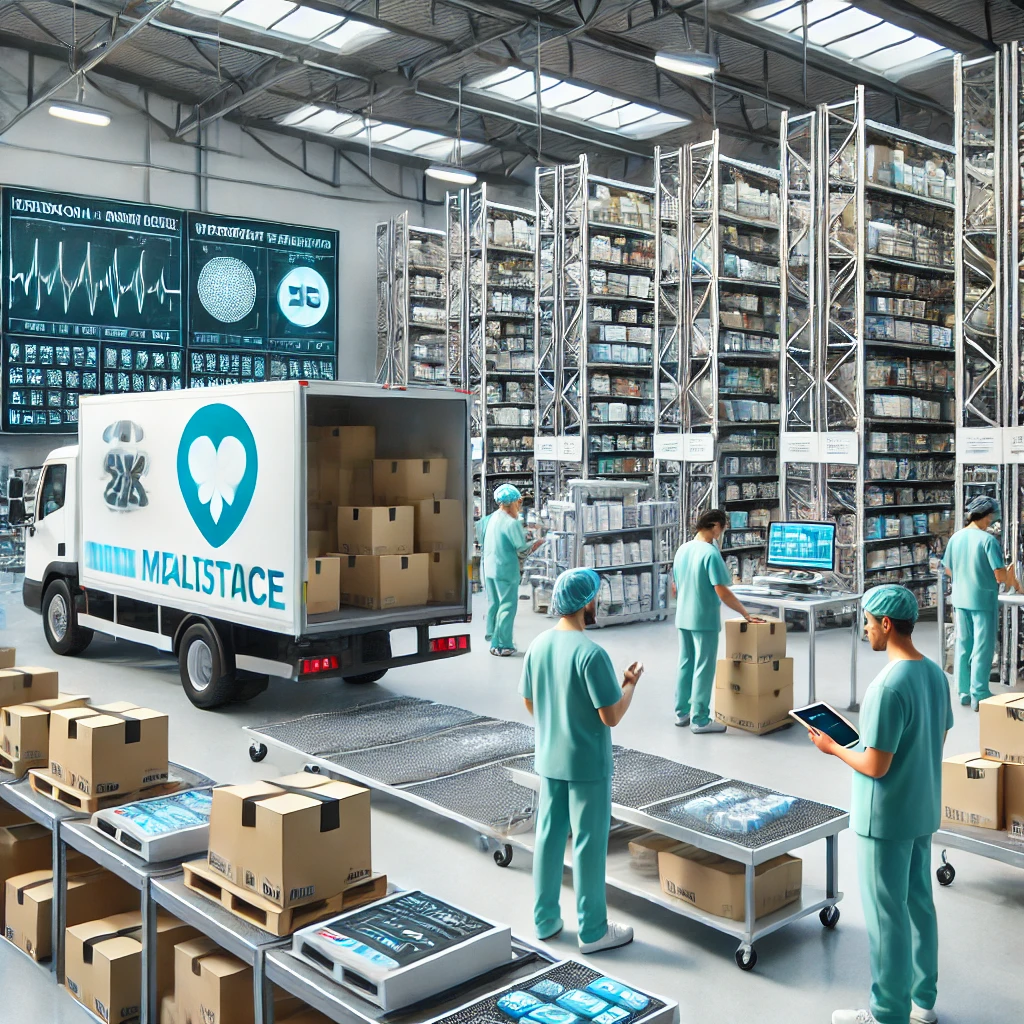When you think of health care, what comes to mind? Doctors, nurses, patients – sure, they’re all part of the picture. But there’s another, often overlooked hero in the story: health care logistics. This behind-the-scenes operation ensures that every medical supply, medication, and piece of equipment arrives at the right place at the right time. Let’s dive into the world of health care logistics, exploring its importance and how it’s transforming patient care.
The Role of Health Care Logistics in Modern Medicine
Health care logistics isn’t just about moving boxes from one place to another. It’s about the smooth, efficient flow of essential materials that make up the backbone of patient care. Imagine a hospital without the necessary supplies – from life-saving medications to surgical tools, everything must be in the right place at the right time. This is where health care logistics comes into play, ensuring that the supply chain remains uninterrupted, no matter the circumstance.
Why Is Health Care Logistics So Important?
The importance of health care logistics cannot be overstated. Every time you visit a doctor or undergo a procedure, you’re relying on an intricate web of logistics that ensures your care is seamless. From medications to medical equipment, health care logistics ensures that everything arrives exactly when and where it’s needed. Without it, hospitals and clinics would face significant delays, which could affect patient outcomes.
Challenges in Health Care Logistics
As with any complex system, health care logistics faces its share of challenges. One major obstacle is ensuring that sensitive medical products are transported under the right conditions. Medications and vaccines, for instance, require temperature-controlled environments, and if those conditions are not met, their effectiveness could be compromised. Additionally, the sheer volume of supplies required to keep hospitals and clinics running smoothly can create bottlenecks, especially during times of increased demand, such as during pandemics.
Health Care Logistics and Its Impact on Patient Care
One might wonder, “How does health care logistics affect me as a patient?” Well, let me paint a picture for you. Imagine you’ve just been admitted to the hospital for a procedure, and everything you need – from your medications to surgical instruments – is on standby. The precision and speed at which everything is delivered is a result of effective health care logistics. It minimizes delays, improves efficiency, and ultimately contributes to better patient outcomes. In short, without health care logistics, the system would fall apart.
The Future of Health Care Logistics
With the rapid advancements in technology, health care logistics is evolving at an unprecedented rate. Automation, real-time tracking, and artificial intelligence (AI) are starting to play key roles in ensuring that logistics processes are faster and more accurate than ever before. This means fewer delays, lower costs, and more accurate delivery of critical supplies. In the future, health care logistics will continue to transform the way medical facilities operate, ensuring that patient care remains at the highest standard possible.
Technology’s Role in Health Care Logistics
Let’s talk about technology for a second. We all know that technology is changing every aspect of our lives, and health care logistics is no exception. From inventory management systems to advanced tracking tools, technology has made it easier to monitor every step of the supply chain. This increased visibility allows for better decision-making, faster response times, and ultimately more efficient operations. For example, automated storage systems in hospitals allow supplies to be stored and retrieved with minimal human intervention, reducing the chances of human error.
Streamlining the Supply Chain: Health Care Logistics in Action
So how does health care logistics actually work in practice? Let’s take a look at a typical day in the life of a health care logistics manager. These professionals are responsible for overseeing everything from inventory management to transportation and distribution. Their job is to ensure that supplies are available and accessible, whether it’s ensuring that a new shipment of medications arrives on time or that hospital rooms are stocked with the necessary equipment. It’s all about balancing the flow of goods and services while anticipating any potential challenges.
Case Study: Health Care Logistics in Crisis Situations
One of the best ways to truly understand the importance of health care logistics is to look at how it performs during a crisis. Take the COVID-19 pandemic, for example. Hospitals were suddenly overwhelmed, and the need for supplies like ventilators and personal protective equipment (PPE) skyrocketed. Health care logistics teams had to work overtime to manage the sudden surge in demand, ensuring that supplies were distributed where they were most needed. The pandemic highlighted just how vital efficient logistics are in emergency situations, where time is often the most critical factor.
How Can You Learn More About Health Care Logistics?
If you’re interested in diving deeper into the world of health care logistics, there’s plenty more to explore. The complexity of logistics is often underestimated, but it’s one of the most vital elements in the health care industry. Fortunately, there’s a place where you can learn more and stay up to date with the latest trends and insights in logistics – JoshManity. You’ll find articles, case studies, and more to help you understand the intricacies of this fascinating field.
Conclusion: The Future of Health Care Logistics
Health care logistics may not be a glamorous topic, but it’s undoubtedly one of the most important aspects of modern medicine. It’s the unsung hero that ensures hospitals and clinics run smoothly, providing the necessary supplies and equipment to save lives. As technology advances, health care logistics will continue to evolve, making it even more efficient and impactful. So, whether you’re a patient, a health care worker, or someone interested in the logistics field, it’s clear that this is one area that’s here to stay.
Want to dive deeper into more fascinating topics like health care logistics? Be sure to check out the JoshManity Blog for exclusive insights and updates. You’ll find a treasure trove of content that will expand your knowledge and keep you ahead of the curve. So what are you waiting for? Explore more at JoshManity today!










